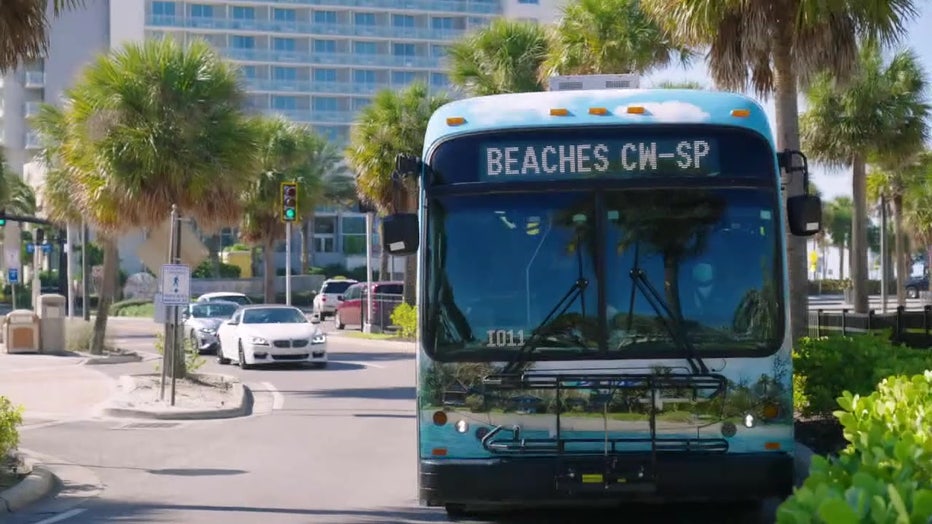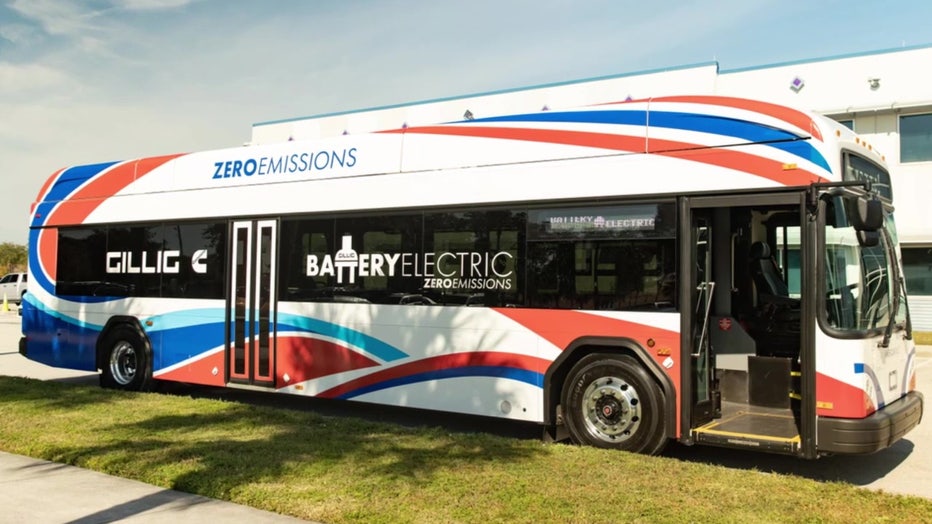Millions of dollars to go toward buying electric buses for Florida cities, counties
TAMPA, Fla. - Florida received millions of dollars from a Volkswagen settlement for cities and counties to buy electric buses, including Tampa Bay. But, experts said the state still has a lot of work to do to establish widespread infrastructure to meet demand.
Pinellas Suncoast Transit Authority will use the $18 million it received to add more electric buses to its fleet.
"In a greater sense will move us toward our bigger, sustainable goal of reaching an all-electric zero emissions fleet by 2050," said Stephanie Rank, a spokesperson for PSTA. "With each bus, electric bus that we have, we save about $20,000 for each electric bus. And that's in diesel fuel costs, which a lot of people don't realize how much diesel actually costs."
The Florida Department of Environmental Protection has a grant program to support the purchase of electric buses. FDEP also announced Monday it awarded more than $68 million to buy 227 electric transit buses in 13 counties across Florida.

"We're all working towards a bigger goal of being more green, and I think the state and FDOT and FTA and even the country is realizing we have to do something," said Rank.
MORE: Push for electric air travel gains momentum in Tampa Bay
The Florida Department of Transportation is also working to support EV infrastructure and submitted a plan of projects to the U.S. Department of Transportation’s Federal Transit Administration that will go through an approval process this fall. Experts in the electric transportation industry said there’s a lot of work to do.
"So Florida is a really interesting state because Florida has the second highest number of EV registrations in the country, but actually ranks lower when it comes to the charging infrastructure, about one public charging station for every 19 electric vehicles," said Matthew Chen, the director of Government Affairs at Blink Charging Company and SemaConnect.
Chen said he sees where EV charging stations are needed.

"Florida has such a high number of EVs and there are more coming. Enterprise and Hertz are adding these to their fleets, including in Tampa and Orlando. So you're seeing an investment from the federal funds going into highways, but you also need charging at theme parks, restaurants and hotels," said Chen.
EV charging stations and infrastructure are also needed in rural areas and interstates. Experts said it’s greener step for the environment, but it won’t be easy.
READ: MacDill AFB could be new stop for Cross Bay Ferry service to help employees commute to work
"We all live in Florida and hurricanes happen. And when they do happen, sometimes you lose power. So what happens when you lose power and there's no way to charge those vehicles? How will those people be able to evacuate?" said Alex Kolpakov, senior research associate at the University of South Florida’s Center for Urban Transportation Research
Resilience and capacity are key, USF transportation researchers said the grid needs an upgrade.
"That's why whenever you plan for installing new infrastructure, charging infrastructure, you definitely have to coordinate that with the local utilities because they need to plan for that rapid growth," said Kolpakov.
While the state waits for the federal government to approve infrastructure plans, local agencies are focusing on their piece of the EV puzzle.
"We are doing our due diligence to help future generations and reduce our carbon emissions in the future," said Rank.
Electric charging companies in Florida like Blink Charging Company said representatives are keeping an eye on updates on FDOT’s plans, so they can help Florida come up with the best way to build out the EV infrastructure.

